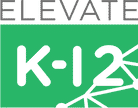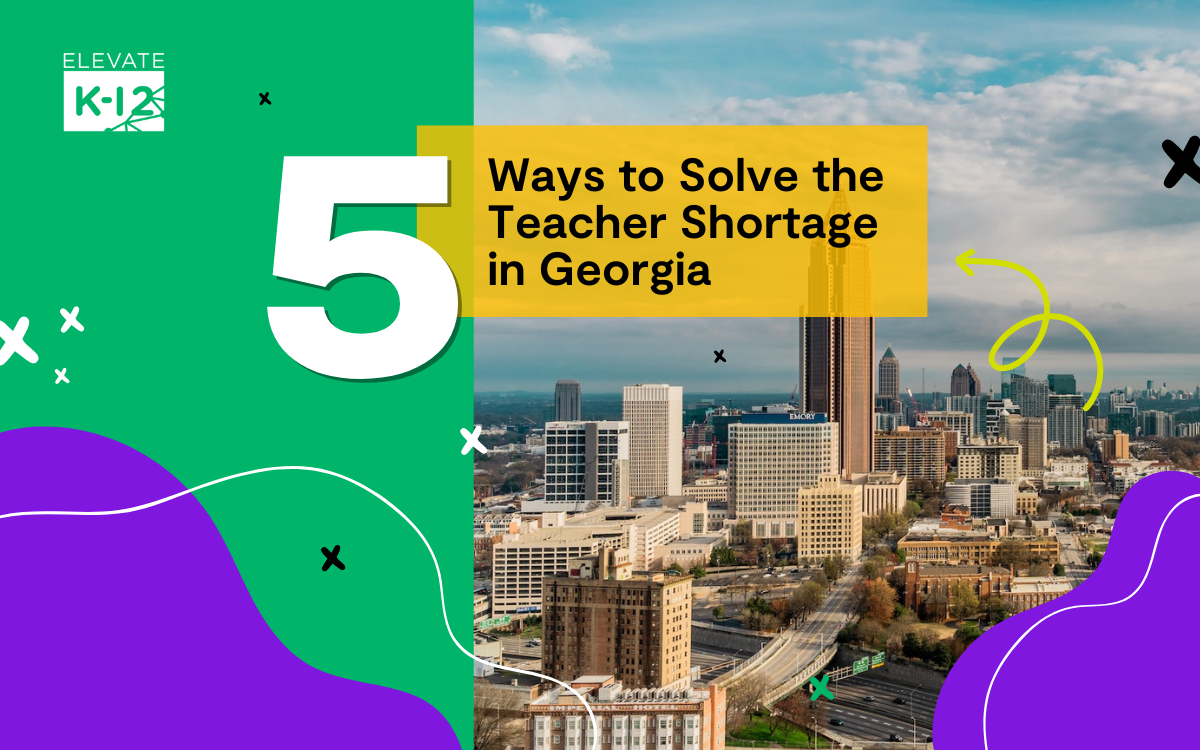Although the teacher shortage is nationwide, Georgia is experiencing one of the most extreme statewide shortages. In addition to high attrition rates, especially of new teachers, fewer people are entering the profession.
Fewer teachers mean bigger class sizes, less personalized attention, and worse outcomes for Georgia students. As a result, Georgia’s public school systems are searching for new ways to fill their vacancies and keep more teachers from leaving.
Reasons for the Teacher Shortage in Georgia
Georgia has both high attrition rates and low numbers of aspiring teachers enrolling in training. Georgia’s attrition rates, especially in hard-to-fill vacancies like special education, can be attributed to a lack of support and low pay — resulting in burnout.
Low Pay and Lack of Professional Support
Georgia teachers make an average of $63,945, while the national average is $66,397. This makes it challenging to outcompete other higher-paying states when recruiting new teachers.
On top of that, Georgia ranks 33rd in the country for per-pupil spending. That means in-classroom support, resources, and professional development opportunities are also limited for Georgia school teachers. Low pay combined with a challenging work environment is a recipe for dissatisfaction among the state’s educators.
Rising Cost of Living
Nationwide inflation has increased the cost of living across the country, and in Georgia, the change has been drastic. In metro Atlanta alone, living costs have increased by 43% since 2000. Teacher pay has not kept up with the increase in living costs, making it harder for teachers to afford to work in public schools.
High Teacher Turnover Rate and Limited Teacher Pool
According to a survey from the Professional Association of Georgia Educators, 31% of teachers stated that they are unlikely or highly unlikely to remain in the profession for another five years. The likely turnover and declining new teacher rates mean the state faces fewer school teachers overall and more vacancies.
Increased Workload and Teacher Burnout
Research in Georgia found that the most significant factor for teacher dropout is “a workforce that feels devalued and constantly under pressure” — in other words, burnout. Burnout results from working conditions teachers face too often: high workloads, long days, a lack of appreciation, and low pay.
Burnout has always been an issue for public educators. However, it has increased in recent years due to rising pressure from pandemic-era changes, economic instability, and political controversy focused on schools.
What Is the Government Doing To Fix the Teacher Shortage in Georgia?
The extreme teacher shortages have forced Georgia lawmakers to respond with new policies and initiatives in hopes of increasing teacher retention. They’ve spent more money on education and created new pipelines for bringing new recruits into the profession.
Increasing Teacher Pay
Gov. Brian Kemp signed a bill that will increase teacher pay by $2,000 in 2023 and another $2,000 in 2024. However, inflation has already nullified both of these raises. If Georgia doesn’t take more drastic measures and further address the working conditions of teachers, this won’t be enough to keep teachers from leaving.
Providing More Financial Assistance for Teacher Preparation
The state has created more pathways to becoming a teacher, as well as offering grants to aspiring teachers. The HOPE career grant, for example, offers free tuition to qualified students in a variety of programs, including education.
Creating Alternative Pathways Into the Teaching Profession
GaTAPP is an option for aspiring school teachers with bachelor’s degrees who have not completed teaching preparatory programs. It includes classroom-based mentorship, which aims to prepare candidates for the challenges of teaching better.
However, completing the program takes 1–3 years and several thousand dollars. Though less expensive than a full degree, the cost may still be prohibitive to potential teaching candidates.
Another unique pathway is the GaSPC, which allows eligible candidates to transition from the military into a teaching profession. GaSPC offers a provisional certificate that enables candidates to teach for up to three years while they complete the requirements for permanent teaching certification.
Retention and Mentoring Program
The Georgia Department of Education received a grant from the United States Department of Education to address the turnover of special education teachers.
The grant provides $500,000 annually for up to five years to help tackle the issue. Georgia has used this grant money to offer the high-quality mentoring and tools special education teachers need. The program has been successful so far, increasing first-year retention by 10%.
5 Ways to Address the Teacher Shortage in Georgia
Georgia needs to make drastic changes to retain more teachers. Providing more support and pay will lead to better teacher working conditions, while innovative technology solutions can help immediately fill vacancies.
1. Reducing Teacher Workload
Georgia teachers experience a constantly increasing workload. In combination with low pay, this rapidly leads to burnout. Finding ways to reduce the burden of meetings, after-school activities, grading, and other overwhelming tasks on teachers’ plates is critical to better teacher working conditions.
With a team of in-house curriculum experts who provide lesson plans aligned to state standards, Elevate strives to help reduce teacher workloads. Our model is designed to help teachers focus on delivering engaging classes.
2. Providing More Support for Teachers
Teachers need more support, and in-classroom paraprofessionals help fill this need. Paraprofessionals can assist with classroom management and contribute to positive student outcomes by offering more one-on-one student attention.
Elevate’s innovative model features a live synchronous certified teacher in the classroom with an in-person paraprofessional to help manage classroom behavior. Our expert-designed program sets teachers and paraprofessionals up for success, allowing them to provide the support students need.
3. Removing Geographic Constraints From Hiring
Schools in rural districts have a harder time recruiting teachers. Remote, isolated areas with few amenities are a hard sell for teachers used to bigger cities.
You can bring certified teachers directly into the classrooms of districts with the worst teaching shortages via remote, live synchronous teaching. Over 65% of workers would prefer to work remotely all the time, and schools can make teaching positions more appealing by offering remote work as an option.
4. Letting Teachers Set Their Own Work Hours
Traditionally, teaching doesn’t offer much flexibility. The class starts when the bell rings, and teachers in public school districts are usually expected to work full-time. Offering more flexible teaching options — and letting teachers choose which class times work for them — can make the profession more enticing.
Elevate allows our teachers to work part-time and choose the classes that work for their schedules while lending their expertise to foster positive student outcomes throughout Georgia.
5. Incorporating Technology and Live Synchronous Teaching
Modern technology makes live synchronous teaching a great experience for both teachers and students. Plus, it allows school districts to address the shortage head-on by significantly expanding the pool of potential teachers to anyone nationwide with a state teaching certification.
Elevate makes it easy by providing all the software and technology needed for high-quality, live synchronous teaching. We even help find the right teachers, filling vacancies in just a few weeks, on average.
Explore How Elevate Innovates the Classroom To Fight Georgia’s Teacher Shortage
The Elevate model is the next best thing to in-person teachers and attracts more teachers to public schools by enabling remote, flexible work. We offer 140+ courses in Georgia, all aligned with GES, NCSS, and ACTFL, including classes in hard-to-fill areas like special education and STEM.
Already in 12 Georgia school districts and counting, Elevate allows schools to fill vacancies with certified teachers and offer classes that would otherwise be out of reach.

